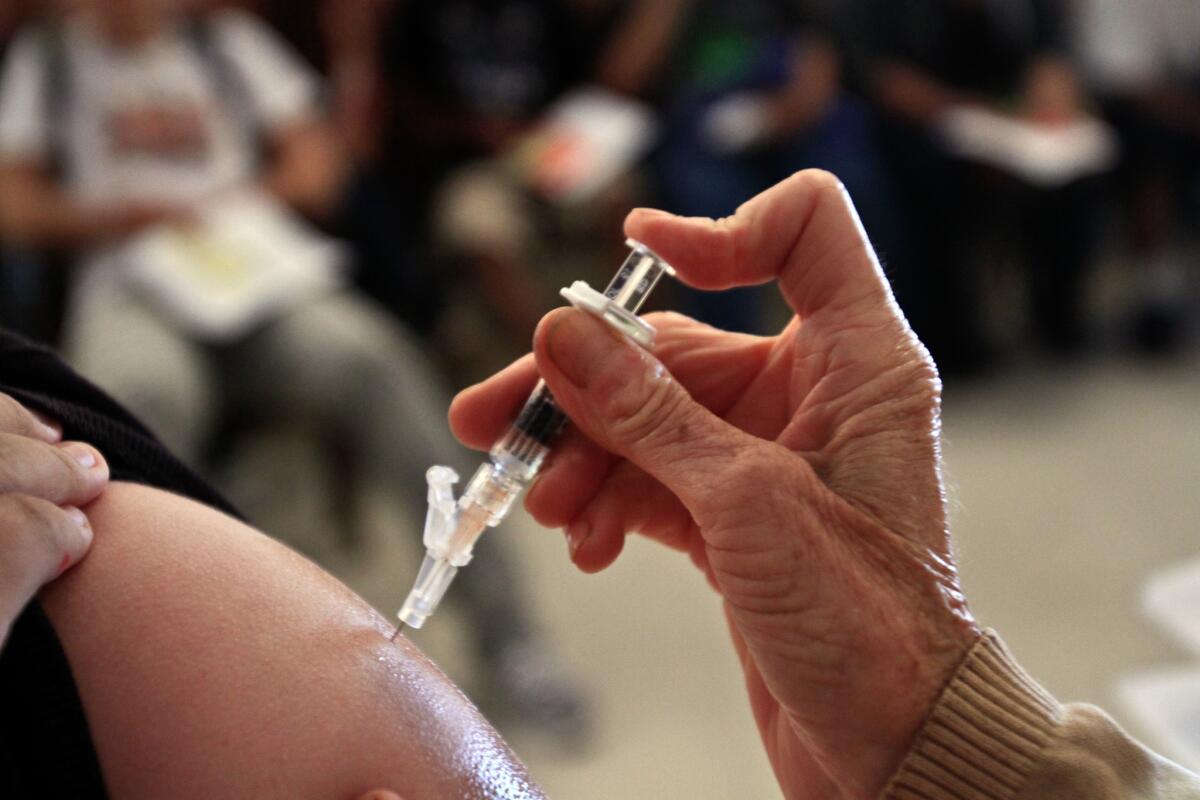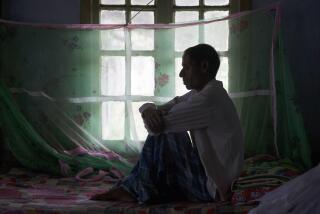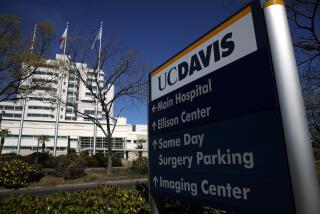Whooping cough on a sharp rise in California, officials report

The California Department of Public Health warned Friday that 1,711 cases of whooping cough, or pertussis, were reported in the state in the first four months of 2014 -- more than three times the number of cases in the same period in 2013.
The uptick could indicate that the illness might be hitting a “cyclical peak,” said Dr. Ron Chapman, director of the public health department.
“Pertussis peaks in incidence every three to five years,” he said, in a statement. “As the last peak in California was in 2010, we are concerned that the recent increase in reported cases suggests that another cyclical peak is beginning.”
In Southern California this year, 77 pertussis victims have been hospitalized and two -- both infants -- have died. Previously, there had been no deaths from pertussis since the last peak, in 2010. More than 90% of the reported cases were in children under 18. About a third were in kids 14 to 16.
Pertussis is caused by bacteria that spread into the upper respiratory system through coughs and sneezes. Similar to a common cold when it first strikes, it progresses into long-lasting coughing fits, often accompanied by a distinctive whooping sound when the patient inhales and vomiting. It can lead to severe complications such as slowed breathing or pneumonia, especially in infants.
Whooping cough is preventable through immunization with the DTaP vaccine, the health department emphasized. But vaccines do not confer lifelong immunity, which makes getting booster shots crucial. In California, five doses of the pertussis vaccine are required by the time a child enters kindergarten, and all seventh-graders are required to receive a booster dose as well.
Pregnant women should get booster shots during the third trimester of pregnancy, and other adults should also get a one-time booster, the state also recommended.
The U.S. Centers for Disease Control maintains a whooping cough information site, as do the public health departments of California and Los Angeles County.
More to Read
Start your day right
Sign up for Essential California for news, features and recommendations from the L.A. Times and beyond in your inbox six days a week.
You may occasionally receive promotional content from the Los Angeles Times.







